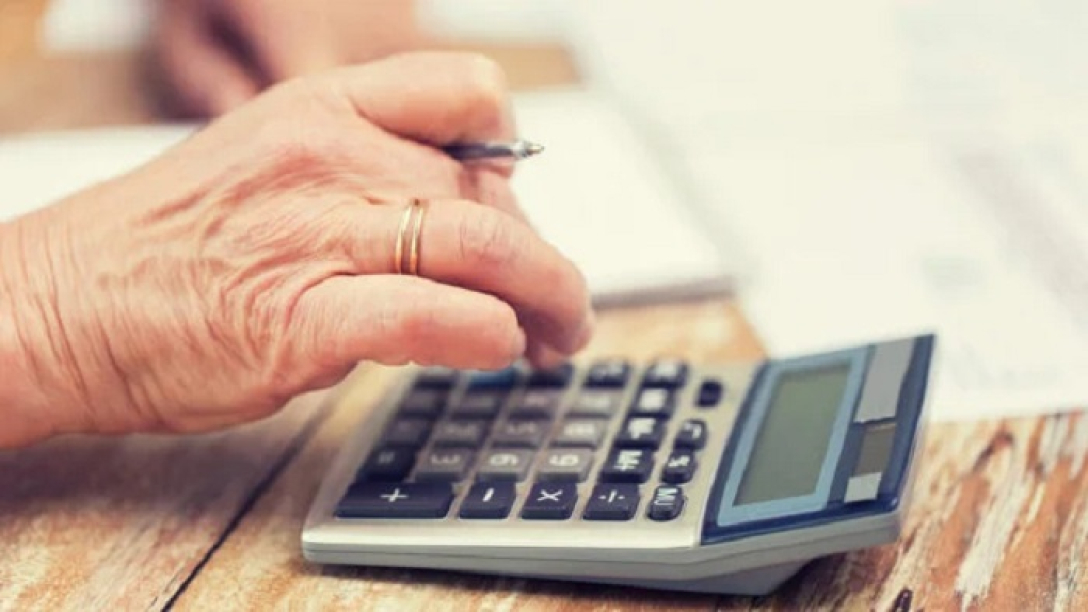Поки переважна більшість українських пенсіонерів виживає на 2–4 тисячі гривень на місяць, окремі представники «привілейованих» професій отримують пенсії, які в сотні разів перевищують ці суми. Судді, прокурори, чиновники — усі вони роками формували систему спецпенсій, яка нині перетворилася на одну з найбільших соціальних нерівностей в Україні. Про те, як виникла ця кланова модель, скільки реально коштує державі «особливе» пенсійне забезпечення і чому без великої реформи не обійтись — розповідає народний депутат Данило Гетманцев.

Проблема в тому, що кланова система спецпенсій формувалася десятиліттями саме привілейованими кланами. Це сітка, яка чіпляється за свій матеріальний шкурний інтерес. Це хоч і колишні, але дуже впливові у країні люди. Вони чіпляються за норму Конституції, яка забороняє при прийнятті нових законів звужувати права, але абсолютно не помічають інші норми Основного закону, які гарантують рівність у правах та принцип недискримінаційності за будь-якою ознакою — зокрема і за родом діяльності. З цим треба боротися і змінювати такий підхід.
Що з пенсіями сьогодні
У нас нині мінімальна пенсія — 2361 гривня, середня пенсія на 1 квітня вже після чергової щорічної індексації – 6341 гривня.
56,6% пенсіонерів отримують менше 5 тис. гривень. Для майже 400 тисяч осіб це взагалі менше 3 тис. гривень, понад 3,3 мільйони – отримують від 3 до 4 тис. тис. гривень, 2,1 мільйони від 4 до 5 тис. гривень. Якщо порівняти з фактичним прожитковим мінімумом для непрацездатних, який на середину цього року наближається до 7 тисяч гривень, то ці категорії пенсіонерів знаходяться глибоко за межею бідності. І лише у 1,5 мільйонів осіб вона перевищує 10 тис. гривень. У середньому їх пенсія – 15,6 тис. гривень.

Однак є така категорія, як судді, де середня пенсійна виплата перевищує 100 тис. гривень. Є прокурори, які можуть стати пенсіонерами з інвалідністю у віці 35 років, тоді як звичайному чоловіку-українцю, щоб отримати мінімальну пенсію, треба відпрацювати 35 років, а жінці – 30 років.
Одні пенсії зростають автоматично, інші – через прийняття законів, треті (як для колишніх військових) – встановлюються рішеннями Уряду, які вже давно не приймалися. І увесь цей різнобій додає додаткових барв почуттю несправедливості у суспільстві.
Спецпенсії бувають різними
Необхідно розуміти, що сам термін «спецпенсія» треба використовувати дуже коректно.
Такі виплати отримує не тільки умовна «еліта» (колишні судді, прокурори, народні депутати, члени уряду), але й працівники міліції (поліції) та інших правоохоронних органів, колишні професійні військові, звичайні державні службовці та працівники місцевого самоврядування, особи, що працювали на шкідливих виробництвах, чорнобильці та багато інших категорій.
І їх «спецпенсії» – це не завжди десятки і сотні тисяч гривень. Пенсія колишніх військовослужбовців – 8,5 тис. грн, ветеранів війни – 8,3 тис. грн, дітей війни – 5,7 тис. грн, науковців – 5,6 тис. грн. Але це також – спецпенсії.
Мільярдні «дірки» в бюджеті через ухвали судів
Серед цього різноманіття спецпенсіонерів далеко не всі отримують ті виплати, які передбачені діючим законодавством. Не всі при цьому мають можливість (і у зв’язку з віком, і зі станом здоров’я) відстоювати свої права у суді. Але щодо тих, хто все ж рухається цим шляхом – деякі кейси дійсно вражають.
Слід зазначити, що нерідко судові рішення ухвалюються за законами, які вже не є чинними, та за якими передбачалися більші виплати, ніж у нових законах. Як, наприклад, до закону «Про прокуратуру» 1991 року, хоча він втратив чинність після того, як у 2015 році депутати ухвалили новий закон «Про прокуратуру». Саме попередній передбачав пенсії у 90% зарплати, а не 60%. Подібна норма була і у Законі «Про державну службу» 1993 року, який втратив чинність у 2016 році.
У 2023 році суди ухвалили 240 тис. рішень у пенсійних справах проти держави, у 2024-му – ще понад 100 тис. Борг за рішеннями судів наближається до 100 млрд грн. Причому рішення по окремим категоріям осіб (прокурори, судді, особи, звільнені зі служби) обумовлюють збільшення видатків Пенсійного фонду на виплату поточних пенсій орієнтовно на 34,3 млрд грн на 2025 рік.

Ще один показовий факт. У спеціальних пенсійних системах спостерігається чистий дефіцит. Тобто кожна людина, яка має спецпенсію, з Пенсійного фонду отримує набагато більше, ніж сплачувала відрахувань до нього протягом своєї професійної діяльності. Наприклад, є судове рішення за яким прокурор, маючи середню заробітну плату 13 тис. гривень, отримав пенсію у 97 тис. гривень. Це не є справедливим по відношенню до всіх інших наших громадян, які отримують мізерні пенсії, пропрацювавши все життя.
Якими мають бути пенсії в майбутньому
Реформа спецпенсій вже не тільки назріла, а навіть перезріла. Та вона має здійснюватися не окремо сама по собі, а виключно як складова «великої пенсійної реформи», якої ми так і не дочекались за усі роки Незалежності.
Розраховую побачити від урядовців кардинально інший підхід до пенсійного забезпечення українців, який поступово, але послідовно і незворотно ліквідовуватиме бідність пенсіонерів, а не консервуватиме та поглиблюватиме її.

Наразі пропозиції Мінсоцполітики передбачають пенсійну реформу, за якою пенсії мають становити не менш 60% середнього заробітку людини (до речі як це відповідає середньому рівню у ЄС). Посилаючись на стандарти Європейської соціальної хартії та Конвенцію Міжнародної організації праці, пропонується:
- Солідарна пенсія становила 40% середньої зарплати;
- Додатково пенсія за накопичувальною системою – 20%;
- Можливі додаткові пенсійні системи від роботодавців у вигляді професійної пенсії – 10%.
Сподіваюсь, що реформа пенсійної системи стане гармонійною частиною більш глобальної реформи, спрямованої на подолання бідності: реформування системи оплати праці, ринку зайнятості, спрямованих на стимулювання створення не абияких, а високооплачуваних робочих місць, детінізацію виплати заробітної плати – незалежно від того, чи робітничі ці професії, чи інженерно-конструкторські, чи наукові, чи творчі. Бо неможливо подолати бідність пенсіонерів в країні, де бідними залишатимуться працюючі люди та/ або які отримують зарплату у конвертах.

